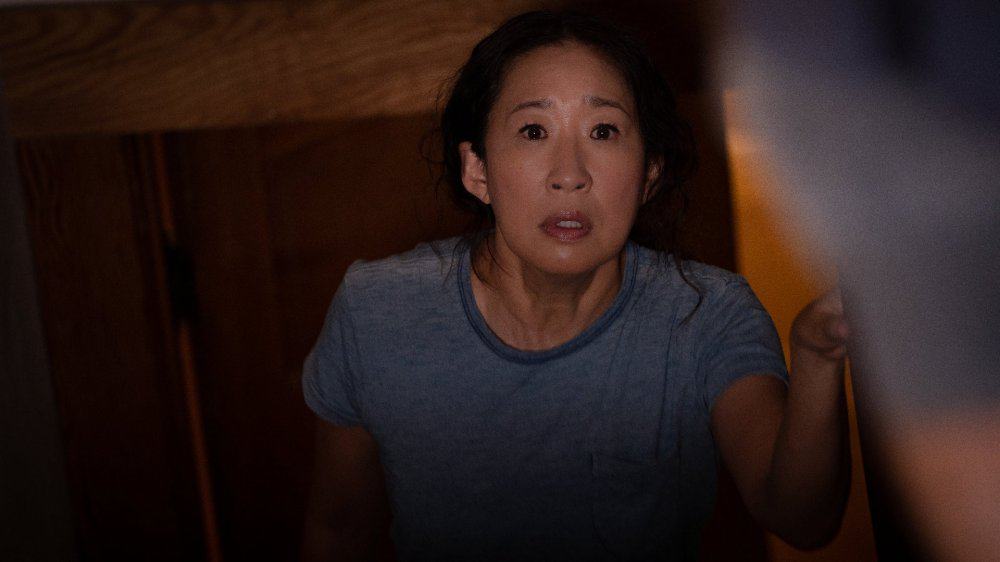
A creepy and disconcerting look into the mother/daughter relationship produced by Sam Raimi, here’s our review of Umma.
Directed by Iris K. Shim and starring Sandra Oh, Umma combines horror with family issues and Korean culture to create a gripping and creepy story about mothers. Amanda (Sandra Oh) and her daughter Chris (Fivel Stewart) live an isolated life with no technology. Working as beekeepers, their peace is disrupted when Amanda is informed that her abusive mother (or Umma in Korean) has died and is given her ashes and possessions. Warned that her mother’s anger will grow the longer she is kept boxed up, Amanda tries to hide her away and forget their traumatic relationship, but she can’t seem to rid herself of Umma’s lingering presence. Also starring are Dermot Mulroney and MeeWha Alana Lee.
The film does an excellent job of exploring different cultural views on parenting, and specifically how the dynamic between parent and child should change as they grow up. Fivel Stewart is very sympathetic as a conflicted Chrissy, who loves her mum and wants to support her, but also wants to spread her own wings. Amanda is also conflicted, but in a much more terrifying way. As Umma’s influence grows, she is torn between being a more supportive mother than she had (a view fuelled by fear of becoming her own mother) and wanting to keep her child close, even if that means limiting her potential.
As you might expect, there are some cultural specificities to the movie, and it’s wonderful to see Korean culture displayed and explained in a mainstream American film, mixing the cultures the way that the story itself does. We need more of that in modern filmmaking. But the bond between parent and child is a universally relatable topic, and the characters are easy to identify with – whether that’s Amanda or Chris.
But of course, underneath all of the serious themes, it’s a horror film. Admittedly, the lack of technology in the house and the nervous energy emitted by Sandra Oh combines to make a consistently creepy atmosphere. All of the nighttime scenes are lit by old fashioned oil lamps, which makes for an automatically unsettling amount of shadow – but there’s rarely anything there. The film isn’t really all that scary. Oh herself really sells her terror through her increasingly panicked state and unstable mood, but there’s nothing particularly horrifying for the audience. For those expecting outright horror, Umma goes for a consistently creepy atmosphere over blind terror, but it does it well.
It seems ultimately like the film is more concerned with exploring the psychology of its characters and what’s going on in their minds. Whether that’s Amanda’s fear of her mother (and becoming like her), or Chris’ feelings towards her Korean heritage and culture, which Amanda has deliberately not taught her about. The horror genre has always been a great way to create metaphors for internal feelings, but it always works best when equal efforts are devoted to the horror aspects and the deeper meaning. This just isn’t the case with Umma, which for a film produced by Sam Raimi, doesn’t pack the punch you’d expect.
Umma is a disconcerting and atmospheric film with an excellent performance from Sandra Oh. A disturbing look into the dark side of the relationship between parent and child, and the fear of being a ‘bad’ parent. It’s just a shame that, while we feel Amanda’s terror, there’s not much to be scared of ourselves.
Umma will be released in cinemas on March 25th.
—
Thank you for visiting! If you’d like to support our attempts to make a non-clickbaity movie website:
Follow Film Stories on Twitter here, and on Facebook here.
Buy our Film Stories and Film Stories Junior print magazines here.
Become a Patron here.





